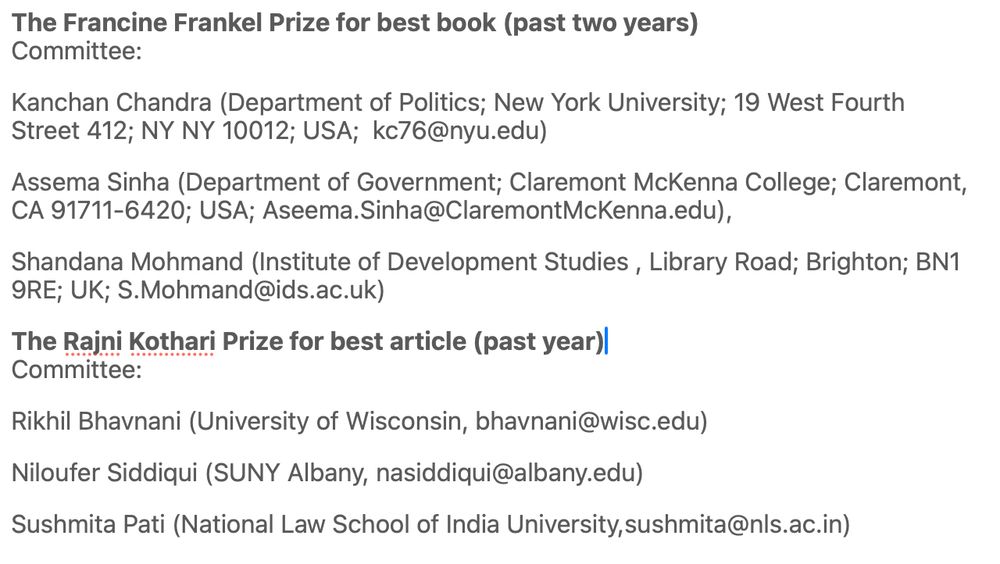🌍 European Political Science Society is officially launched (EPSS)!
🗓️ June 26, 2025
📍EPSS is a not-for-profit & member-led association for political science in Europe
👉 Visit us: epssnet.org
Some updates 👇🏽
🧵
🗓️ June 26, 2025
📍EPSS is a not-for-profit & member-led association for political science in Europe
👉 Visit us: epssnet.org
Some updates 👇🏽
🧵

EPSS – European Political Science Society
In June 2025, the EPSA Governing Council voted to establish the not-for-profit organisation European Political Science Society (EPSS). Join our listserv and follow this website for more information and join us next summer for Belfast 2026.
epssnet.org
Congratulations to @sandipto.bsky.social, Tariq Thachil and Adam Auerbach for winning the South Asia Section's Francine Frankel prize for their books Machines and Migrants and Legalizing the Revolution
Prizes will be presented at APSA 2025
Prizes will be presented at APSA 2025
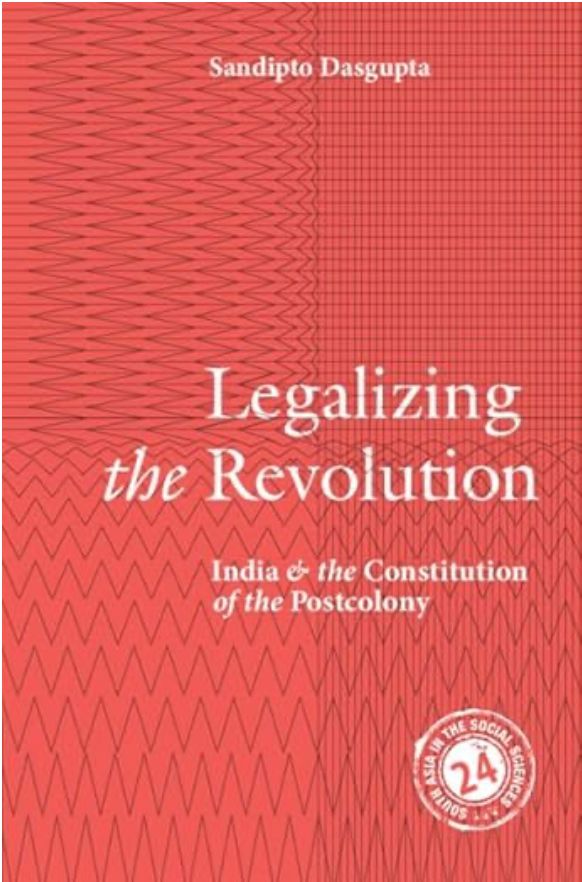
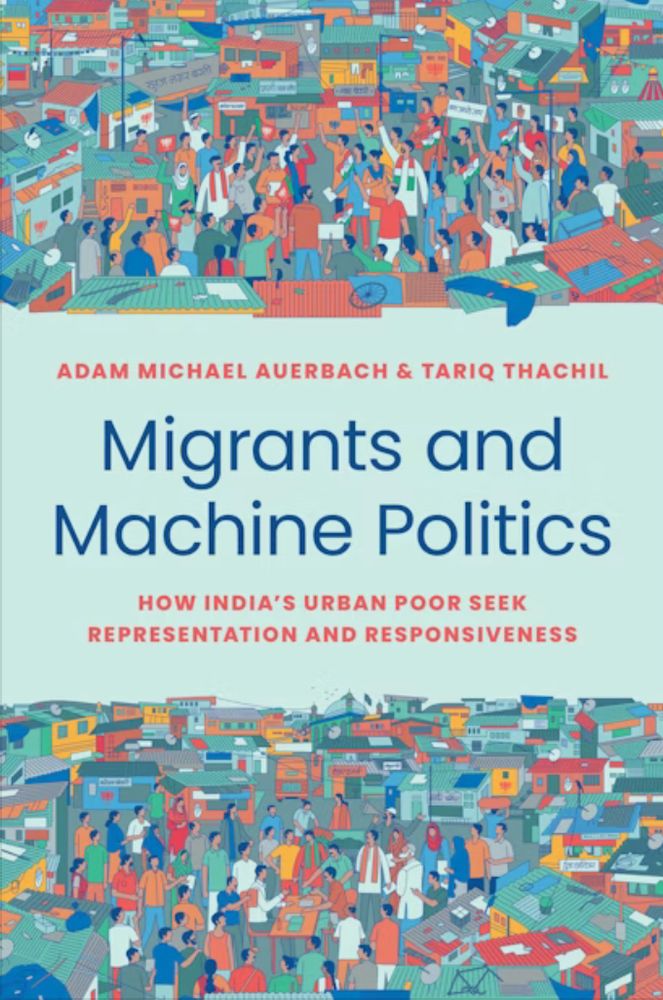
Got promoted to full professor.
I asked my colleague what that meant, and he said "you get to go to the full professor meetings." I asked what they did at the meetings, and he said "we talk about who to promote to full professor."
I asked my colleague what that meant, and he said "you get to go to the full professor meetings." I asked what they did at the meetings, and he said "we talk about who to promote to full professor."
There are several important caveats about drawing lessons from historical cases, and about the cases themselves. Read the paper for those!
10/10
10/10
The main lesson for today is that polarization will continue as long as the parties remain relatively competitive in elections
Unfortunately, they *have* been very competitive, switching power and control of Congress every two to six years, with no sign of stopping.
9/10
Unfortunately, they *have* been very competitive, switching power and control of Congress every two to six years, with no sign of stopping.
9/10
The declining party, realizing that the trends are working against it, engages in anti-majoritarian tactics to try to slow those trends. The Federalists opposed the Louisiana purchase and proposed a supermajority requirement to admit new states to the union.
8/10
8/10
What causes one party dominance? Demographic and structural economic factors were important. For example, westward expansion added new voters who were disposed to support the Dem.-Republicans.--no Federalist presidential candidate ever won a state that was added after 1796
7/10
7/10
At same time, the dominant party factionalizes on the new issues. The Dem.-Republican party factionalized on Andrew Jackson and internal improvements in the 1820-30s, the Republicans split between progressives and conservatives on regulatory issues in the 1900-20s
6/10
6/10
The second pattern is that when polarization ends, new issues emerge that replace the old issues in importance.
You can think of it as losing party finding new things to talk about. The Democrats weren't winning on low tariffs and racism, but they could win on the New Deal
5/10
You can think of it as losing party finding new things to talk about. The Democrats weren't winning on low tariffs and racism, but they could win on the New Deal
5/10
Our big finding: Polarization will last as long as the parties remain competitive, and end after one party becomes dominant
There is no convergence toward the center or the median voter
See how DWnominate cong. polarization falls after long periods of unified government
4/10
There is no convergence toward the center or the median voter
See how DWnominate cong. polarization falls after long periods of unified government
4/10

We look at two spikes of polarization that later ended: The First Party System when Federalists and Dem.-Republicans were polarized on the constitution and foreign policy, and the Third/Fourth Party Systems when Dems and Reps were polarized on the tariff and Reconstruction.
3/10
3/10
This is not the first time American politics have been polarized. Polarization has increased before and has ended before.
And the reasons it ends are not necessarily the reasons it begins.
2/10
And the reasons it ends are not necessarily the reasons it begins.
2/10
A lot has been written on the causes of polarization, but Avidit Acharya, Theo Serlin and I wanted to ask a different question: How Polarization *Ends*
Paper link and 🧵
tinyurl.com/jp2pk4rt
1/10
Paper link and 🧵
tinyurl.com/jp2pk4rt
1/10
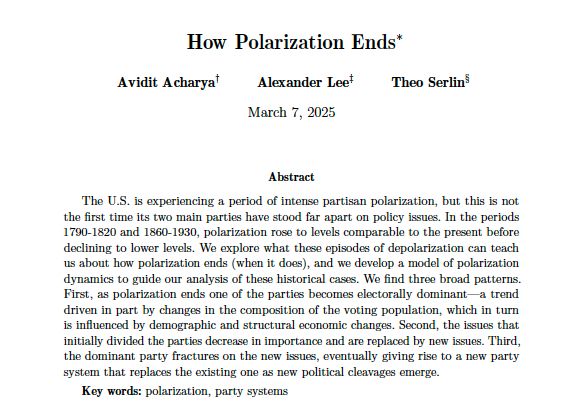
Congratulations to @simonchauchard.bsky.social, @sumitra.bsky.social, and Niloufer Siddiqui, who received the 2025 Rajni Kothari Award for best paper on South Asian Politics for "Misinformation and support for vigilantism: An experiment in India and Pakistan"
www.cambridge.org/core/journal...
www.cambridge.org/core/journal...
Misinformation and Support for Vigilantism: An Experiment in India and Pakistan | American Political Science Review | Cambridge Core
Misinformation and Support for Vigilantism: An Experiment in India and Pakistan
www.cambridge.org
Do you have a recently published book or article on South Asia? Submit your work for the APSA South Asian section prizes! Details below.
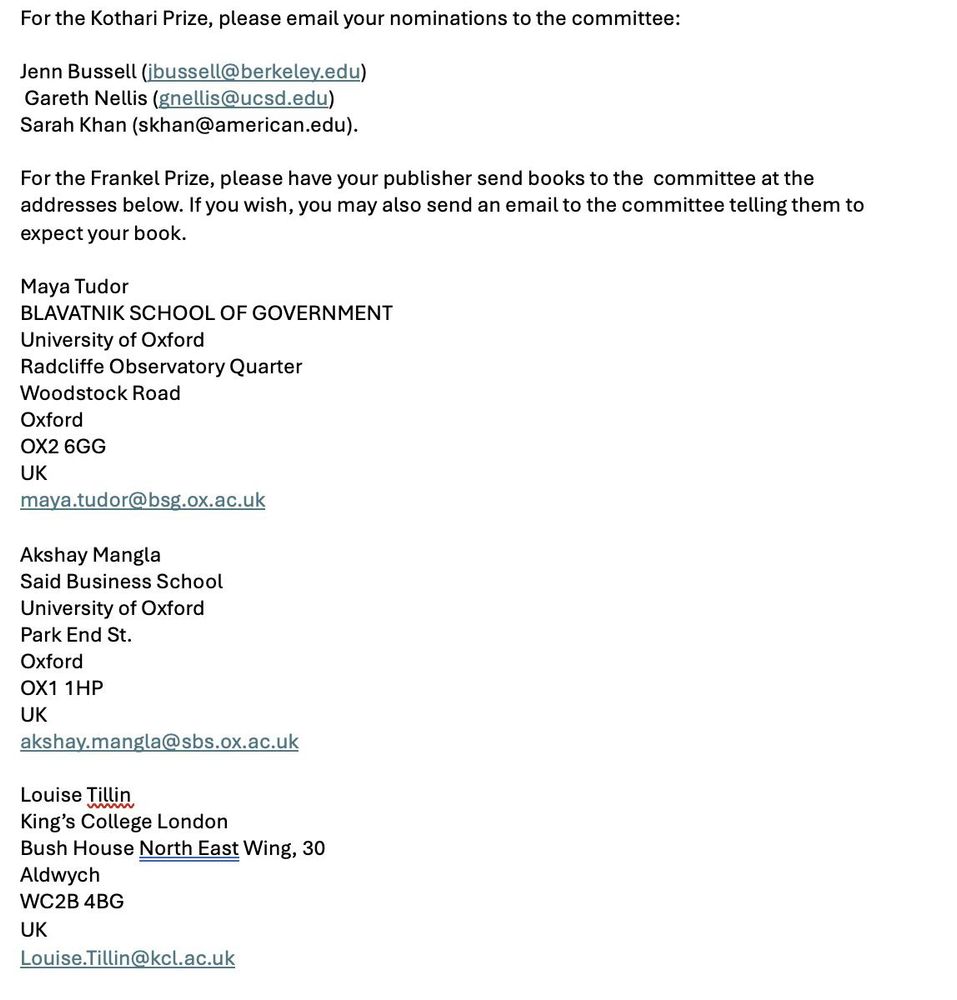
The @apsa.bsky.social South Asian Politics Section is soliciting nominations for the Frankel Prize for best book (last two years) and Kothari Prize for best article (past year). Self nominations are fine. The deadline for both prizes is February 1st. Submission details below.
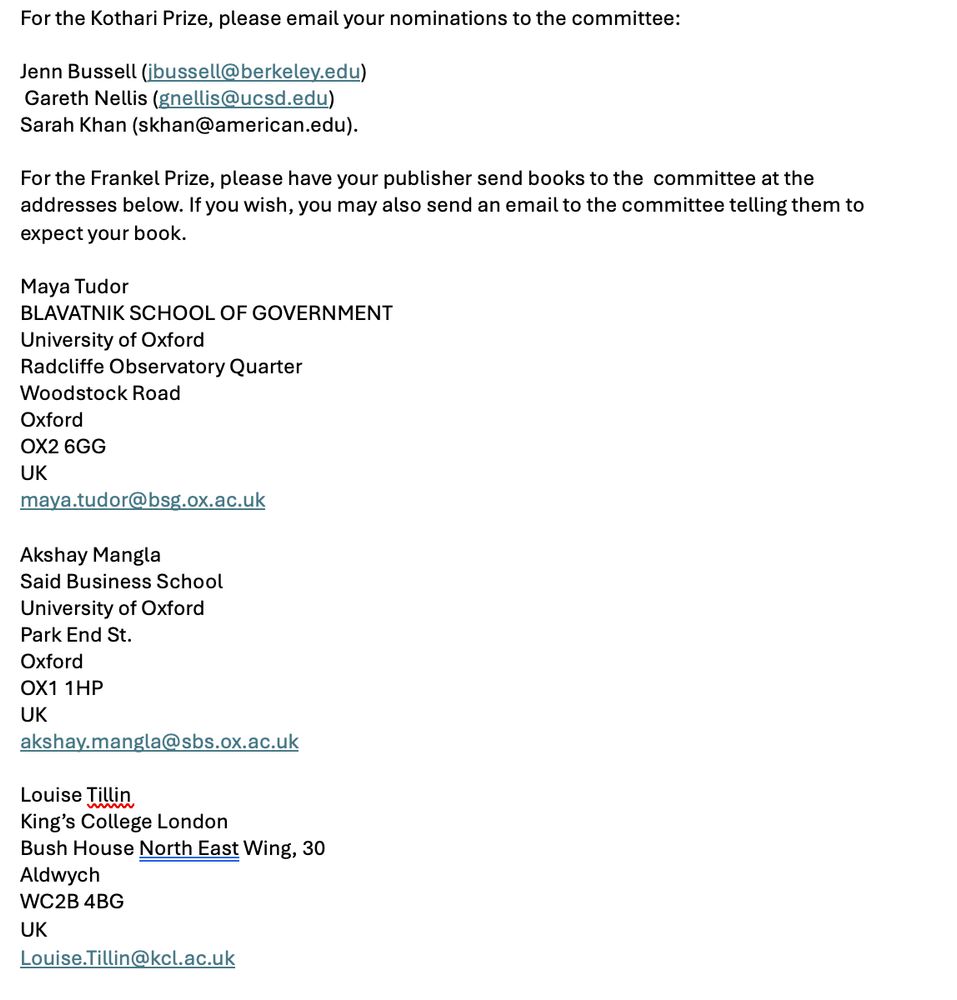
Reupping a post that got lost in the holidays: The South Asian politics section of APSA now has prizes for best book and best article on South Asia. Please nominate work you admire (even your own).
South Asian Politics (Section 55)
American Political Science Association
www.apsanet.org
The South Asian Politics section of APSA would like to announce two new prizes. Please send nominations (including self-nominations) to the committee by February 1st. If you’re the author of a book, you can ask your editor to send copies.
